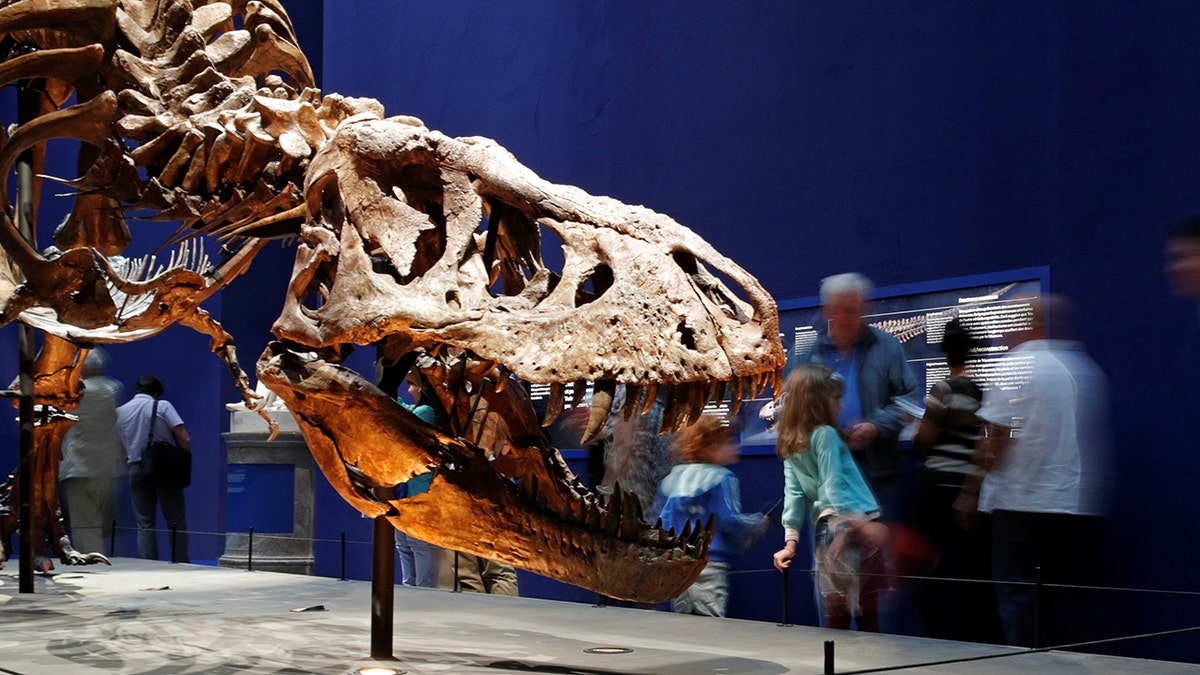'Bonecrushing' crocodile that hunted dinosaurs 230M years ago discovered in Brazil
Fossils of a 'bonecrushing' reptile that's related to the modern-day crocodile has been discovered in Brazil. The powerful scavenger that feasted on dinosaurs 230 million years ago was nicknamed the 'T. Rex of its time' by researchers.
A previously undiscovered asteroid crater off the coast of West Africa may hold some answers about how Dinosaurs went extinct.
Approximately 66 million years ago, a large asteroid, whose crater is named Chicxulub, slammed into the Earth at the end of the Cretaceous period, causing the destruction of the dinosaurs. However, researchers have now found a new asteroid crater off the coast of West Africa that impacted the Earth around the same time, according to a study released Thursday by Science Advances.
Given the name the Nadir Crater, it is located off the coast of Guinea, West Africa, and is 300m below the sea and 400km from the nearest land with a diameter of 8.5km. Although Nadir is not as large as Chicxulub, an analysis of the age of nearby fossils indicates it is a very similar age.
The discovery was made by Dr. Uisdean Nicholson, a professor at Heriot-Watt University in Edinburgh, UK. Originally, he was examining seismic survey data when he fell came upon evidence of the crater.
NEW DINOSAUR SPECIES IS LARGEST FOUND IN AUSTRALIA, SCIENTISTS SAY

Scientists have discovered a new crater that may have landed to Earth around the time dinosaurs went extinct. (REUTERS)
"These surveys are kind of like an ultrasound of Earth. I've spent probably the last 20 years interpreting them, but I've never seen anything like this," Dr. Nicholson told the BBC. "Nadir's shape is diagnostic of an asteroid impact. It's got a raised rim surrounding a central uplift area, and then layers of debris that extend outwards."
Some other researchers, such as Profession Sean Gulick have suggested that Nadir may have crashed into the Earth on the same as the Chicxulub Crater, but scientists can not make that determination until further inspections of the African crater.
"A much smaller cousin, or sister, doesn't necessarily add to what we know about the dinosaurs' extinction, but it does add to our understanding of the astronomical event that was Chicxulub," Gulick said to the BBC.
103-MILLION-YEAR-OLD DINOSAUR FOSSIL FOUND IN OREGON
The asteroid that caused the Chicxulub crater to fall in the Gulf of Mexico is measured to be 12km long, creating a 200km-wide depression. The crash caused destructive firestorms and tsunamis that put the Earth into an ice age, causing much of the world's species to perish.









































